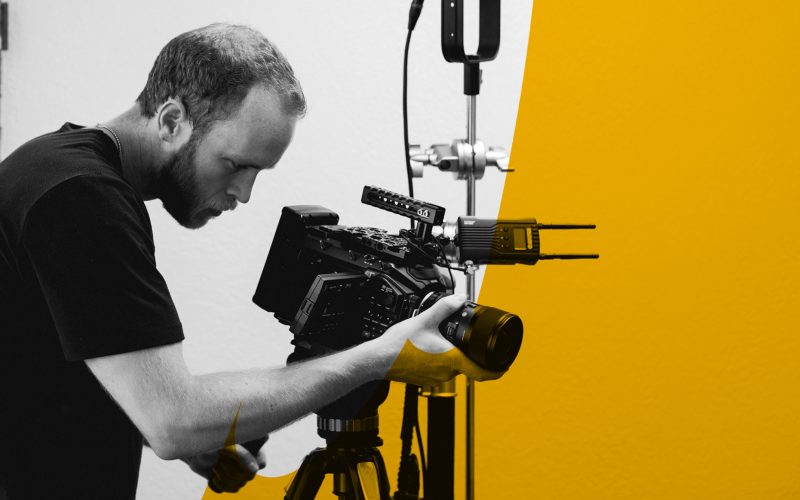Introduction
In today’s fast-changing world, the way movies are promoted has changed a lot. Film studios no longer rely only on posters, billboards, and TV ads. Digital platforms have transformed how movies are marketed, shared, and watched.
Digital marketing is now a key part of the film industry. It helps studios and independent filmmakers connect with audiences, spread the word about new films, and increase ticket sales. This article looks at how digital marketing works, the tools it uses, and how it has changed the movie world.
The Shift to Digital Marketing

Traditional marketing methods, like TV ads and posters, still matter. But they don’t work as well with modern audiences who spend a lot of time online. The film industry now uses digital marketing to keep up. Filmmakers use tools like social media, websites, emails, and online ads to reach their audience directly. This helps them stay connected with tech-savvy viewers.
Digital Marketing Tools and Platforms

- Social Media Campaigns: Platforms like Facebook, Instagram, Twitter, and TikTok are now key tools for promoting movies. They let filmmakers talk directly to fans. Sharing trailers, behind-the-scenes clips, and updates helps create excitement. Interacting with followers builds a strong fan base even before the movie is out.
- Website and Online Presence: A movie website is like its home online. It can show trailers, share fun content, and sell tickets. A well-made website looks professional and gets people excited about the film. Filmmakers can also track how visitors use the site to learn what fans like most.
- Email Marketing: Emails are a great way to keep fans updated. Filmmakers can send newsletters, special offers, and sneak peeks to build excitement. Collecting email addresses from social media or websites helps make a list of interested viewers who stay engaged.
- Online Advertising: Ads on Google, Facebook, and YouTube help more people learn about a movie. These ads can focus on specific groups based on age, interests, or habits. This ensures the movie reaches the people most likely to watch it.
- Influencer Marketing: Social media influencers are powerful in today’s world. Filmmakers can team up with influencers who match the movie’s style or audience. These influencers can share posts, reviews, or endorsements that help fans connect with the film.
- Video Content and Trailers: Trailers, teasers, and short clips grab people’s attention. Platforms like YouTube, Instagram, and TikTok are perfect for sharing this content. Fans can also create their own videos, like reviews or reactions, which adds more buzz and visibility for the movie.
Benefits of Digital Marketing for the Film Industry

- Wider Reach: Digital marketing helps filmmakers reach people all over the world at a lower cost. Unlike TV ads or billboards, it targets specific groups based on age, interests, or location. This is especially helpful for independent filmmakers with small budgets who want to create buzz.
- Cost-Effective: Traditional marketing, like TV ads, can be very expensive. Digital marketing is cheaper and still gets great results. Social media ads, email campaigns, and influencer deals are affordable ways to promote movies.
- Real-Time Engagement and Feedback: Digital platforms let filmmakers connect with fans instantly. Social media and websites give quick feedback, showing how people feel about the movie. Filmmakers can adjust their strategies or content based on audience reactions.
- Targeted Marketing: Digital tools allow campaigns to focus on the right audience. Data helps filmmakers understand what people like. For example, YouTube ads can show trailers to viewers who enjoy similar movies.
- Building a Fan Base: Social media helps movies gain fans before they’re released. People who follow the movie’s pages often share content with friends, spreading excitement. Fans can post reviews or talk about the movie, boosting its popularity.
The Role of Digital Advertising in Film Marketing
Digital advertising is an important part of promoting a film. Ads on search engines like Google, video platforms like YouTube, and social media can help get the word out about a movie. With digital ads, filmmakers can target specific audiences based on their interests, location, and online behavior. For example, if someone is interested in action movies, filmmakers can show them ads for a new action film. This targeted approach makes digital advertising very effective in reaching the right people at the right time.
Digital Marketing Tools for the Film Industry
Social media is one of the best ways to promote movies. Platforms like Instagram, Facebook, and TikTok let filmmakers post trailers, sneak peeks, and behind-the-scenes clips. These posts build excitement and keep fans engaged.
Filmmakers can also use ads on social media to target the right people. Ads can focus on things like location, age, or interests. These tools help spread the word and make sure the movie reaches its audience.
The Power of Video Content
Video content plays a huge role in digital marketing for films. Movie trailers, teasers, and behind-the-scenes videos are incredibly effective at grabbing attention. People are more likely to watch and share videos than any other form of content online. Filmmakers use videos on platforms like YouTube, Instagram, and TikTok to promote their films in creative ways. Short clips and trailers can spark curiosity, while longer videos like interviews with the cast or behind-the-scenes footage can build excitement for the film’s release.
Influencers and Their Role in Film Promotion
Influencers play a big role in promoting movies. They have large groups of loyal followers who trust their opinions. By working with influencers, filmmakers can reach more people. Influencers can share trailers, write reviews, or post creative content about the movie. This helps connect the film with younger audiences who are active online.
Social Media’s Influence on Film Marketing

Social media has changed how movies are promoted. It helps filmmakers reach more people from different backgrounds. Fans can like, share, and comment on posts, which spreads the word about the movie. Social media also makes it easy to create viral campaigns. When fans and influencers share content, millions of people can see it. This builds a sense of community and gets everyone excited for the movie’s release.
Cost-Effectiveness of Digital Marketing
Digital marketing is much more affordable than traditional marketing methods. Television ads, radio spots, and billboards can be expensive, especially for independent films with a limited budget. Digital marketing, on the other hand, allows filmmakers to reach a large audience at a fraction of the cost. With social media platforms and online ads, filmmakers can target specific groups of people, making their marketing efforts more cost-effective. This is especially helpful for smaller films that don’t have the big budgets of major studios.
The Growing Need for Data and Analytics
Digital marketing allows filmmakers to gather and use data. They can see how many people watch trailers, click on ads, or buy tickets. This information shows what works and what doesn’t. Filmmakers can adjust their strategies to improve results. Using data makes marketing campaigns smarter and more effective.
Building a Strong Fanbase Through Social Media
Social media helps filmmakers build a loyal fanbase. By sharing regular updates and engaging with followers, filmmakers can create a community around their films. Fans who feel connected to a film are more likely to promote it themselves by sharing posts and talking about it online. This organic marketing can be just as effective, if not more so, than paid ads. A strong fanbase can also help generate early buzz, making it easier for a film to succeed when it’s released.
Adaptability of Digital Marketing Strategies
One of the best things about digital marketing is its flexibility. Unlike traditional marketing methods, which can take time and money to adjust, digital marketing strategies can be changed quickly and easily. If something isn’t working, filmmakers can alter their approach in real time. For example, if an ad campaign isn’t generating the right kind of engagement, filmmakers can adjust the targeting or create new content to better connect with their audience. This adaptability makes digital marketing a valuable tool for the film industry, allowing filmmakers to make the most of their resources.
Challenges of Digital Marketing in the Film Industry

- Over-Saturation of Content: The internet is packed with content, making it hard for movies to stand out. With so many campaigns running one after another, audiences can feel overwhelmed. Filmmakers need to be creative and plan their promotions carefully to grab attention.
- Evolving Algorithms: Platforms like Facebook, Instagram, and YouTube keep changing how they show content. These updates can make it harder for movie ads to reach people. Filmmakers need to stay updated and adjust their strategies to stay visible.
- Online Reviews and Criticism: Online reviews happen fast. Positive buzz can help a movie, but negative comments can spread just as quickly. Managing a film’s online reputation is now a key part of marketing. Filmmakers must respond to concerns and keep the conversation positive.
- Data Privacy Concerns: Using data to target audiences is helpful, but it raises privacy issues. Filmmakers must follow rules like GDPR and be clear about how they collect and use people’s information. Being honest builds trust with the audience.
The Future of Digital Marketing in the Film Industry

The future of digital marketing in the film industry looks bright, with new technologies and platforms emerging all the time. Virtual reality and AI may provide new ways to engage audiences, while influencer marketing will continue to grow. As digital tools become more sophisticated, filmmakers will be able to target even more specific audiences. The film industry will continue to rely on digital marketing to stay competitive, adapt to changing trends, and create even stronger connections with moviegoers.
Comparative Table: Traditional vs. Digital Marketing in Film Industry
| Aspect | Traditional Marketing | Digital Marketing |
|---|---|---|
| Reach | Limited to specific regions and media channels (TV, newspapers) | Global reach through social media, websites, and online ads |
| Cost | Expensive (TV ads, billboards) | Cost-effective with flexible budgeting (social media, email) |
| Engagement | One-way communication (TV, radio) | Two-way communication (social media, real-time feedback) |
| Targeting | Broad audience, less precision | Highly targeted campaigns (age, location, interests) |
| Impact on Audience | Limited interaction with the audience | Direct engagement through comments, shares, and discussions |
| Speed of Campaigns | Slow, planned months in advance | Fast-paced, can adapt quickly to trends |
Analysis Table: Digital Marketing Strategies and Effectiveness in the Film Industry
| Strategy | Effectiveness | Challenges |
|---|---|---|
| Social Media Campaigns | High engagement, broad reach | Over-saturation of content, algorithm changes |
| Website and Online Presence | Establishes movie brand, increases direct engagement | Requires regular updates and high-quality content |
| Email Marketing | Builds a loyal fanbase, promotes exclusivity | Needs a strong subscriber list |
| Online Advertising | Drives targeted traffic to ticket platforms | Can be costly with small budgets |
| Influencer Marketing | Expands reach and adds credibility | Dependence on influencer’s audience and engagement |
| Video Content and Trailers | Engages viewers effectively, viral potential | Must create visually compelling content to stand out |
Conclusion
Digital marketing has become a cornerstone of modern film promotion. From social media campaigns to influencer partnerships, the ability to target, engage, and measure success in real time has transformed how films are marketed. While traditional marketing methods still have their place, the flexibility, cost-effectiveness, and global reach of digital marketing offer significant advantages for filmmakers. By leveraging digital platforms, the film industry can build stronger connections with audiences and ensure their films get the attention they deserve.












